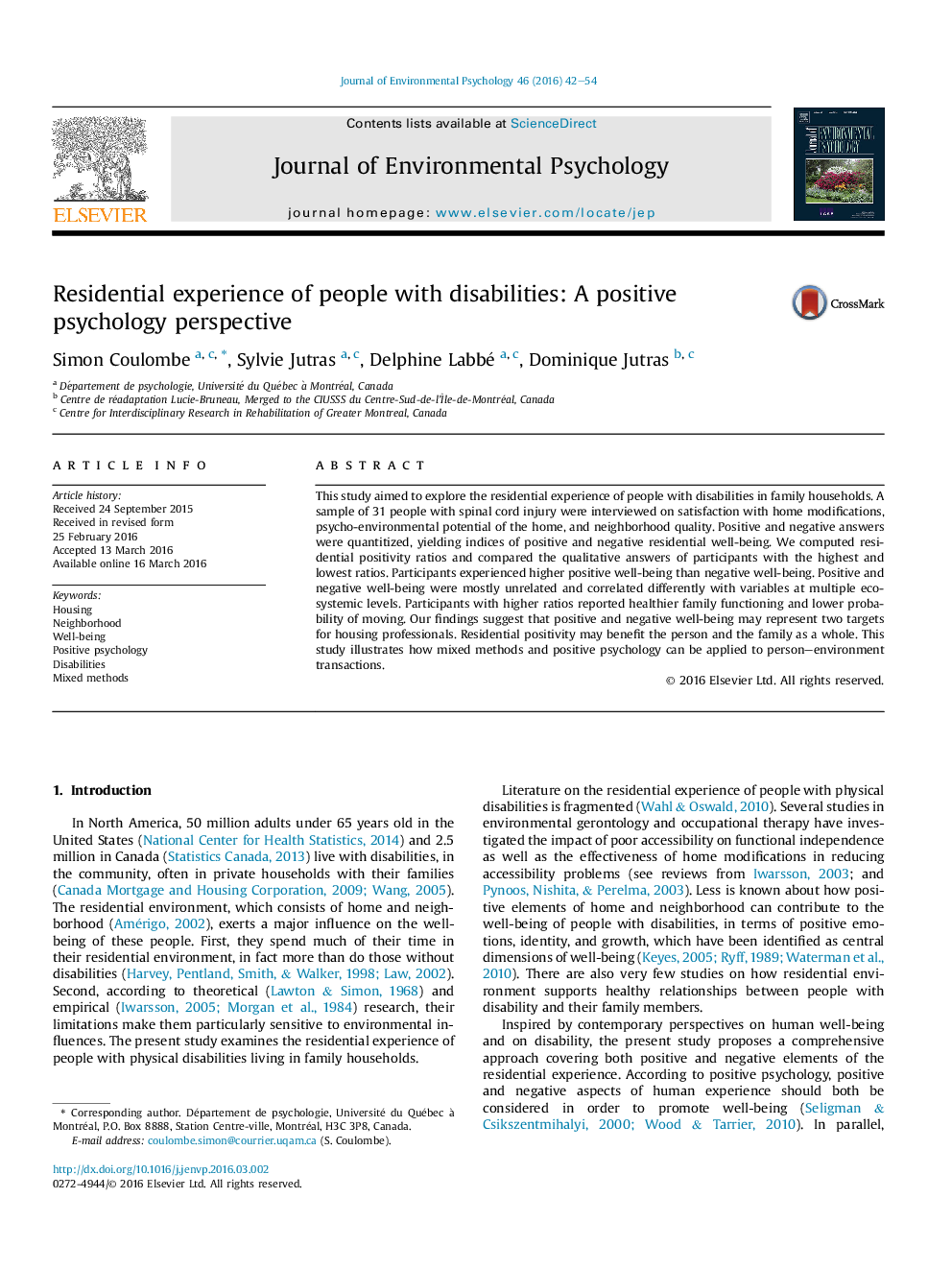| Article ID | Journal | Published Year | Pages | File Type |
|---|---|---|---|---|
| 885578 | Journal of Environmental Psychology | 2016 | 13 Pages |
•31 people with spinal cord injury were interviewed on their residential experience.•Positive and negative well-being were independent in participants' experience.•Residential experience was mostly positive, but task instrumentality was a concern.•Residential positivity was related to family functioning.•Study illustrates the application of positive psychology and mixed methods in EP.
This study aimed to explore the residential experience of people with disabilities in family households. A sample of 31 people with spinal cord injury were interviewed on satisfaction with home modifications, psycho-environmental potential of the home, and neighborhood quality. Positive and negative answers were quantitized, yielding indices of positive and negative residential well-being. We computed residential positivity ratios and compared the qualitative answers of participants with the highest and lowest ratios. Participants experienced higher positive well-being than negative well-being. Positive and negative well-being were mostly unrelated and correlated differently with variables at multiple ecosystemic levels. Participants with higher ratios reported healthier family functioning and lower probability of moving. Our findings suggest that positive and negative well-being may represent two targets for housing professionals. Residential positivity may benefit the person and the family as a whole. This study illustrates how mixed methods and positive psychology can be applied to person–environment transactions.
